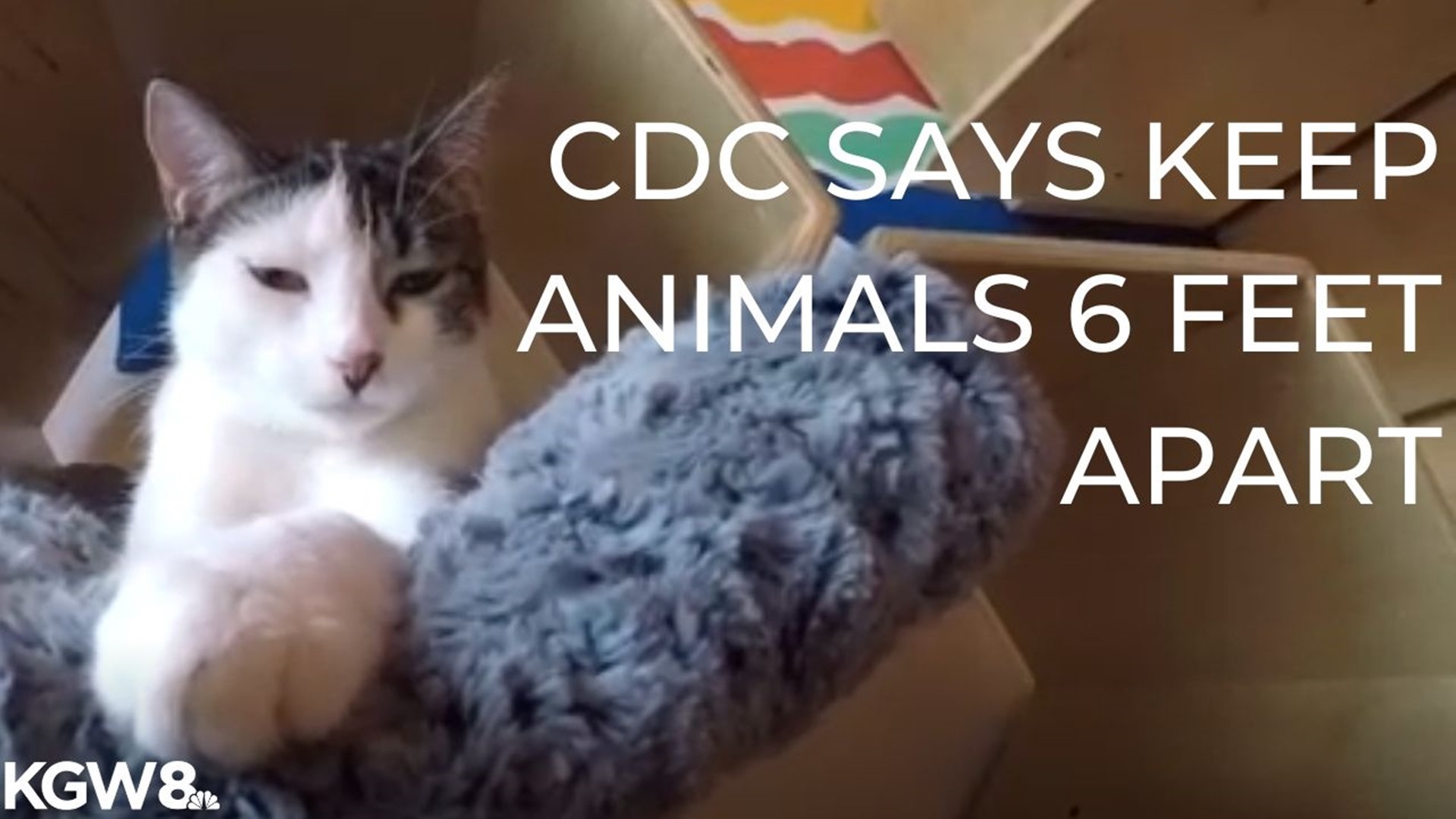PORTLAND, Ore — When you take your dog on a walk, don't let your social distancing guard down. The same goes for your indoor/outdoor cat.
According to the Centers for Disease Control and Prevention, it's best to take precautions and keep your pets away from other people and animals at this time.
Not only should you maintain a physical distance of at least 6 feet from others, but the CDC now says your animals should maintain that distance as well.
In the U.S. multiple animals, including a family's pug in North Carolina, two pet cats, and five tigers and three lions at the Bronx Zoo in New York have tested positive for COVID-19. Two pet dogs and a pet cat in Hong Kong also tested positive.
But the CDC said there's no evidence that animals play a significant role in spreading the novel coronavirus, SARS-CoV-2, that causes COVID-19.
The American Veterinary Medical Association says at this time, "We have no information that suggests that pets might be a source of infection for people with the coronavirus that causes COVID-19."
The risk of animals spreading the disease to people is considered to be low, experts say.
But while the main way the virus spreads is from person to person, transmission between animals and humans can't be ruled out until more testing is done.
Zoonotic diseases - those transmitted from animals to people - are very common and Oregon Veterinary Medical Association President Dr. Timothy McCarthy says those illnesses cover the entire spectrum of viral, bacterial and parasitic diseases. So it's not surprising to veterinarians that animals are being diagnosed with this particular disease and that it is found in multiple species.
"I think the concern people should have is about other people, not animals. And with more time and more data concerning animal infections then we will be able to give more clear-cut answers. But at this time we really can’t," McCarthy said.
Dr. McCarthy says during the COVID-19 outbreak people should not let their pets interact with anyone - two-legged or four-legged - outside of the household.
The same precautionary measures taken with other humans should apply to pets' interactions, Dr. McCarthy says.
"Same applications you would use for people--distance, lack of contact or minimizing any contact, not allowing dogs to play with other dogs, not letting cats outside unattended--are a very reasonable thing to do at this point in time," McCarthy said, "And I don’t think it’s doing too much at all. It's just being careful to avoid contact with the unknown. In other words, the unknown pet that could be infected, the unknown person that could be infected."
As tempting as it is, avoid petting other people's dogs. For now, hold off on bringing your pups to dog parks and letting them run around off leash.
To be cautious, keep your indoor/outdoor cat inside at this point. In some situations, McCarthy says those cats will become extremely stressed cooped up indoors.
As you've heard hundreds of times by now, wash your hands and maintain good hygiene, around people and around animals.
If someone inside your home gets sick, the CDC says make sure that person is in isolation away from other people and pets. Have someone else in the home take care of the animals while they are ill.
While McCarthy says there's no scientific evidence at this point to prove contamination can be found under an animal's fur, "It's logical to assume that if it can be on paper or other things we touch that it could certainly be on an animal."
"I certainly wouldn’t be afraid of my animal or afraid of contact with my animal unless there’s a high-risk contamination situation. And we should be cherishing our animals and providing comfort for them and allowing them to provide for us in this confinement situation we’re dealing with right now," McCarthy added.
For more information on coronavirus and pets, visit the CDC's FAQ page.

